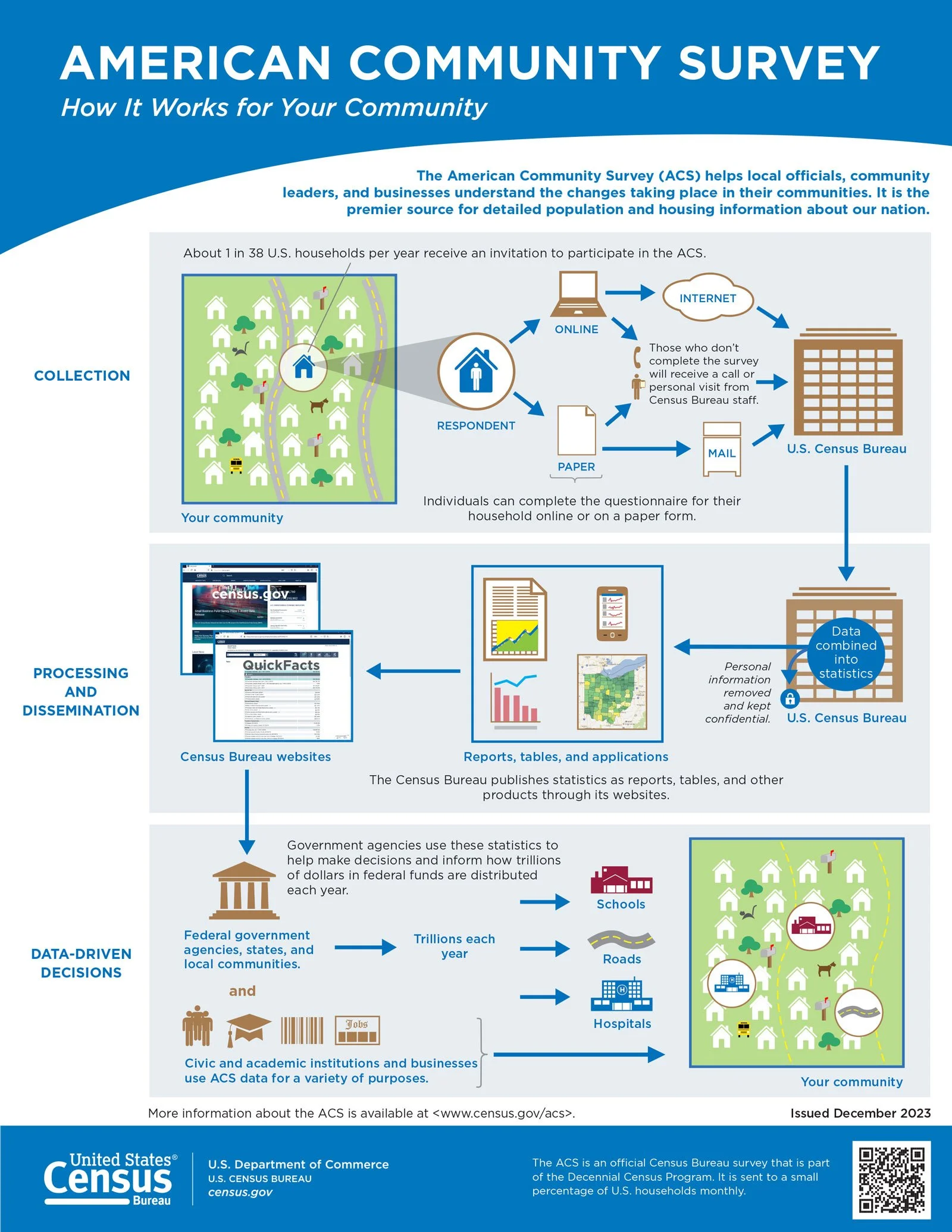
Census & ACS
What is the American Community Survey or ACS?
The ACS is a survey conducted every year by the United States Census Bureau that is sent to a sample of households (about 3.5 million). It is still required by law to fill it out if you receive the ACS survey and the goal of the ACS is to provide detailed information on how communities live - our education, housing, jobs, etc. The American Community Survey provides information about the social and economic needs of your community every year. ACS data helps determine how federal resources are distributed within Georgia.
What is the Decennial Census?
The Decennial Census is a nationwide survey conducted every ten years by the United States Census Bureau. The goal of the Decennial Census is to count every person who lives in the United States, regardless of their age, citizenship, or legal status. By collecting this information from all residents, the U.S. Census Bureau receives an accurate number of the U.S. population which can be used to help make decisions at various levels of government.
Decennial Census data helps to direct federal funds to our states for services such as schools and education, healthcare, transportation infrastructure, and housing. Additionally, Decennial Census data influences how districts are drawn for the U.S. Congress, Georgia State Legislature and all local levels of government. If our communities do not complete or fully participate in the Census, we risk our representation in government and funding for critical services. This can negatively impact our communities' well-being and growth in the long term.
Who are ‘Hard to Count’ Communities?
The U.S. Census Bureau refers to communities as ‘Hard to Count’ or HTC when their traditional methods of counting are not sufficient to fully include them in the census. Traditionally undercounted communities include low-income households, minority populations, immigrants, and young children. These communities are often harder to count accurately in the Census and ACS due to a variety of factors, including socio-economic status, language barriers, cultural differences, lack of awareness or education, and mistrust of the government.
‘Hard to Count’ communities are at risk of being under-represented in census and ACS surveys and therefore at risk for receiving even less resources and ineffective government representation.


